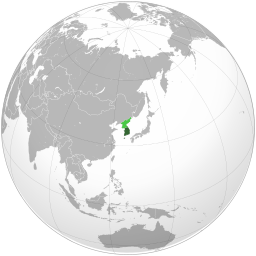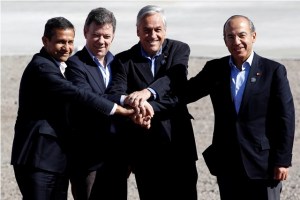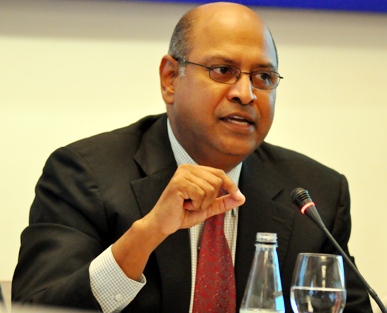[vc_row][vc_column width=”1/2″][vc_column_text]
Korea, Republic of
South Korea was the 12th largest economy in the world by nominal GDP in 2018. GDP per capita is $31,363. The South Korean economy is one of the largest success stories of the 20th century with the country moving from poverty to the ranks of the OECD in less than 50 years. The country has limited natural resources but has a highly educated and hard-working workforce. South Korea ranks second on the World Bank's Human Capital Index. South Korea is a member of the G20, and OECD. Services was the largest economic sector in 2018 at 54 percent of GDP. This is lower than many other high-income countries but reflects the strength of South Korea's manufacturing sector (27 percent) rather than a lack of development in services. In 2017, the largest export sectors were electronics (27 percent), vehicles (15.8 percent), machinery (14.5 percent), services (12.7 percent), and chemicals (12.3 percent). The largest individual exports were electronic integrated circuits (15.6 percent), ICT services (6.7 percent), cars (5.7 percent), refined petroleum (4.5 percent), and cargo ships (3.8 percent). Its largest export partners were China (25 percent), USA (11.5 percent), Vietnam (7.9 percent), Hong Kong (7.3 percent), and Japan (4.5 percent). The largest goods imports were crude oil (12.6 percent), electronic integrated circuits (6.8 percent), petroleum gas (3.6 percent), and refined petroleum (3 percent). South Korea's economic growth post the Korean war has often been described as a miracle. Beginning in the 1960s, the government pursued an export-led growth strategy and kept wages under control. The government also targeted key industries which led to the emergence of the family-owned conglomerates known as chaebols (e.g. Daewoo, Hyundai, and Samsung). Growth surged under these policies and only deaccelerated in the 1990s as South Korea converged with advanced countries. The 1997-98 Asian financial crisis hit South Korea hard because of its companies' over-reliance on short-term debt. It forced a painful restructure of many of the chaebols but also led to many positive structural reforms in the economy including increased flexibility in the labour market, and investment and trade liberalisation. These reforms led to a strong return to growth. Growth decreased in Q4 2008 when the global financial crisis led to capital flight causing the won to depreciate and the stock market to fall by over 25 percent. Recession was avoided because fundamentals were sound, and the Bank of Korea moved quickly to address the crisis. Since then growth has been moderate reflecting the mature stage of the economy.
[/vc_column_text][vc_column_text] Its population in 2018 was 51,164,435 [1]
Its population in 2018 was 51,164,435 [1]
 In 2015, 2.71% of its total energy
In 2015, 2.71% of its total energy
consumption was renewable [2]
 In 2021, its GDP grew by 4.02% [2]
In 2021, its GDP grew by 4.02% [2]
 In 2021 it had a positive Current
In 2021 it had a positive Current
Account Balance of US$bn 88.30 [3]
 Its unemployment rate in 2021 was 3.68% [3]
Its unemployment rate in 2021 was 3.68% [3]
 Its Expenditure on R&D (as a percentage of
Its Expenditure on R&D (as a percentage of
GDP) in 2020 was 4.81% [2]
 A Big Mac will set you back the
A Big Mac will set you back the
local equivalent of US$4.02 [4]
What free trade areas or economic unions is it a member of?
None
[/vc_column_text][vc_column_text]What trade deals are there with other countries and economic unions?
Protocol on Trade Negotiations (from 11/02/1973)
Asia Pacific Trade Agreement (from 17/06/1976)
Korea, Republic of - Chile free trade agreement (from 01/04/2004)
Korea, Republic of - Singapore free trade agreement (from 02/03/2006)
EFTA - Korea, Republic of Free Trade Agreement (from 01/10/2006)
ASEAN - Korea Free Trade Area (from 01/01/2010)
Korea, Republic of - India free trade agreement (from 01/01/2010)
Peru - Korea, Republic of free trade agreement (from 01/08/2011)
Korea, Republic of - United States free trade agreement (from 15/03/2012)
Korea, Republic of - Türkiye free trade agreement (from 01/05/2013)
Korea, Republic of - Australia free trade agreement (from 12/12/2014)
Canada - Korea free trade agreement (from 01/01/2015)
EU - South Korea Free Trade Agreement (from 01/07/2015)
China - Korea, Republic of, free trade agreement (from 20/12/2015)
Korea, Republic of - New Zealand free trade agreement (from 20/12/2015)
Korea, Republic of - Viet Nam free trade agreement (from 20/12/2015)
Korea, Republic of - Colombia free trade agreement (from 15/07/2016)
Korea, Republic of - Central America free trade agreement (from 01/10/2019)
UK - South Korea trade agreement (from 01/01/2021)
[/vc_column_text][/vc_column][vc_column width=”1/2″][vc_column_text]Otaviano Canuto, World Bank Group: Walking on the Wild Side – Monetary Policy and Prudential Regulation
A Future for Diaspora Women of North Korea?
Janamitra Devan: The Innovation Imperative
New ‘Pacific Alliance’ Upbeat and Seeking Competitive Advantages
World Bank Group: Create Jobs by Focusing Industries to be Competitive
BRIC Economies
Trade with the United Kingdom
Source: UK Office for National Statistics, October 2022.
Contains public sector information licensed under the Open Government Licence v3.0.
Loading, Please Wait!
This may take a second or two.




















































































